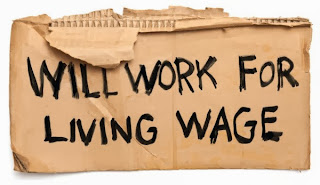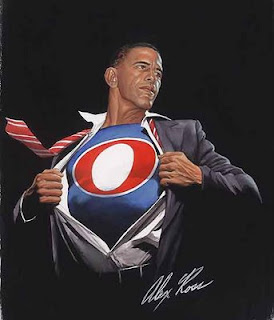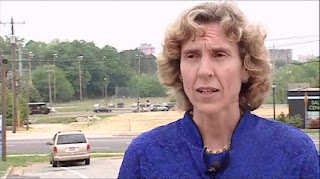NY Times, MSNBC----
Aim of Pres. Obama's Health Speech: Reigniting a Presidency
(Addressing a joint session of Congress, President Barack Obama calls for action on health care reform. "Our collective failure to meet this challenge ... has led us to a breaking point," said President Obama.)
Visit msnbc.com for Breaking News, World News, and News about the Economy
President Barack Obama’s Health Care proposal would:
• Allow Americans to keep their current coverage if they wish.
• Create an “insurance exchange” that would allow individuals and small businesses to bargain for insurance collectively.
• Bar insurance companies from denying coverage because of a pre-existing condition.
• Prohibit annual and lifetime caps on the coverage recipients can receive.
• Impose limits on out-of-pocket expenses.
• Require free coverage for routine checkups and preventive care.
On one level, President Obama’s address to a joint session of Congress on Wednesday night was what it seemed: an attempt to corral lawmakers into approving the signature initiative of his presidency, the health care overhaul that has eluded Washington, as Pres. Obama said, for 65 years.
But the speech was about more than health care.
It was an attempt by this still new president to display his authority to a Congress that had begun to question his fortitude, to show that he was as strong a political leader as he was a political candidate and to show that he was not — to use the shorthand of the day — another Jimmy Carter: professorial, aloof, a micromanager who perhaps was not ready to be the nation’s chief executive.
It is one thing to create and surf a political movement, as Pres. Obama did in capturing the White House. It is quite another to lead an uneasy country and a politically divided Congress toward tough decisions that create winners and losers.
“That’s what this is about,” said Joe Trippi, a Democratic consultant. “We know he can be a candidate; he may even have the right ideas. Now he has to reach down there and make something big happen in the country — either a lot of Americans changing their minds, or members of Congress backing his agenda even if it puts their own political hides at risk. Can he get people to do these things?”
For nearly an hour, Pres. Obama spoke strongly and passionately, pausing only to acknowledge the repeated cheers from his audience as he made what appeared to be his clearest and most concise case yet on a complicated issue that had repeatedly defied his communications skills.
He managed to invest his case with both economic and emotional urgency — particularly when he invoked the memory of Senator Edward M. Kennedy, whose widow, Victoria, was in the audience — without getting bogged down in too many details.
Pres. Obama had clearly decided to speak more to the American people watching on television than to the lawmakers arrayed in front of him in the House chamber. On this evening, at least, Congress was part of the political theater, both in the form of the constant applause from fellow Democrats and in the person of the Republican congressman who yelled out “lie” when Pres. Obama asserted that nothing in his plan would provide coverage for illegal immigrants.
It will take time to see if this works. Bill Clinton gave a similarly well-received address on this very subject in the chamber 16 years ago, to an audience that included many of the same people, among them his wife, Hillary Rodham Clinton, then an author of an ambitious health care plan, now secretary of state.
But there was a key difference between former Pres. Clinton in 1993 and Pres. Obama today. For former Pres. Clinton, it was the beginning of the process; Pres. Obama was ushering in what he hopes to be an endgame, at a moment, as he noted, when four Congressional committees have already reported out bills.
In a recognition of the current political atmosphere, Pres. Obama used his speech to ease away from what had been another defining aspect of his candidacy: the promise to transcend the partisanship in Washington.
He did offer gestures across the aisle, embracing an idea from Senator John McCain of Arizona that would insure the poor against catastrophic medical expenses and endorsing some sort of medical malpractice limits that Republicans have long championed.
But in a climate where at this point he might be lucky to get more than one or two Republican votes from Congress, those were seen by Republicans and Democrats alike mostly as an effort by the White House to get credit for trying and so insulate the administration from criticism that it was trying to jam a bill through on its terms. For the White House, one of the more worrisome events of this summer has been an erosion of independent voters’ support for this president and his health care plan.
Though Pres. Obama spoke of a plan that “incorporates ideas from many people in this room tonight, Democrats and Republicans,” he used the kind of tough, confrontational language that suggested the extent to which the White House would seek to portray Republicans as recalcitrant and standing in the face of a historical tide.
“Know this,” he said: “I will not waste time with those who have made the calculation that it’s better politics to kill this plan than improve it.”
Matthew Dowd, a onetime adviser to former President George W. Bush, argued in an interview that Pres. Obama would not succeed unless he trimmed back on his plan, defying liberal Democrats and appealing to Republicans.
“You cannot sell the country on something it doesn’t want,” Mr. Dowd said.
Pres. Obama is most engaged when his back is to the wall, typically after a period of drift. Again and again throughout his career, he has risen to the occasion: The November 2007 speech at a dinner of Democrats in Iowa that put him on the road to victory there, his speech that defused the controversy over racially charged remarks by his onetime pastor, the Rev. Jeremiah A. Wright Jr., even the speech he gave to Democrats at the 2004 convention in Boston that elevated him to fame.
But as he struggles with the adjustment from campaigning to governing, the battle he is trying to bring to a successful close may prove the toughest test of all.
For his first six months in Washington, Pres. Obama was carried by the momentum of the excitement of his election, by the adrenaline of dealing with the financial crisis that greeted him and by his own popularity. Now, with polls suggesting that all that is beginning to fade, and with Republicans regrouping, he is faced with a need to show that the leadership strengths he displayed as a candidate can be transferred to the office of the Presidency.
Pres. Obama projects $900 billion to fix Health Care
Declaring that he is determined to be the last president confronted with reshaping health care in America, President Barack Obama proposed a 10-year, $900 billion plan Wednesday night to overhaul a system that he said had left the country at “a breaking point.”
In a prime-time address to a joint session of Congress, Obama laid out the specifics of his proposal to change the way Americans’ medical care is paid for, responding to critics who have complained that he has not set forth precisely what he thinks the new program should be.
Obama outlined what he called the favored proposals of extremes on both sides of the health care debate: a single-payer system like Canada’s, in which the government provides coverage for everyone, and a dismantling of the employer-based system, leaving individuals to buy insurance on their own.
The president rejected both options, saying they would represent “a radical shift that would disrupt the health care most people currently have” — something that he said could not be allowed to happen. Instead, he charted a middle course on the most contentious issue of the entire debate — whether the government should directly pay for some Americans’ health insurance beyond the current Medicare and Medicaid programs.
While Obama strongly endorsed what has come to be known as the “public option,” he offered it as only a small component of a larger “insurance exchange” in which individual Americans and small businesses could pool their negotiating power to wrest better coverage and lower rates from private insurance companies.
“It would only be an option for those who don’t have insurance,” Obama said. “No one would be forced to choose it, and it would not impact those of you who already have insurance.”
And even then, he said that he would be open to alternatives as long as they accomplished the “ultimate goal” — ensuring coverage for uninsured Americans and promising “security and stability” for those who already have coverage.
That was not sufficient for Rep. Charles Boustany, R-La., who delivered the official Republican response.
“The president had a chance tonight to take government-run health care off the table. Unfortunately, he didn’t do it,” said Boustany, a cardiothoracic surgeon.
Pres. Obama: "Time for games has passed"
Obama’s address came against the background of harsh back and forth between proponents of competing health care proposals.
The president went out of his way to denounce the “scare tactics” of his opponents, which have included false claims that the government would convene panels to decide whether ill, elderly Americans should be forced to die.
In blunt language rarely heard from a president from the halls of Congress, Obama used words like “bogus,” “demagoguery” and “distortion.” He dismissed the death-panels claim as “a lie, plain and simple.”
And even as he declared that “the time for bickering is over” and that “the time for games has passed,” Obama took a strong swipe at his predecessor, President George W. Bush, in arguing that his proposal — whose price tag he himself put at $900 billion — would actually save money.
That bill would still be “less than we have spent on the Iraq and Afghanistan wars and less than the tax cuts for the wealthiest few Americans that Congress passed at the beginning of the previous administration,” he said.
Without naming Bush, Obama blamed his administration for bequeathing him “a trillion-dollar deficit when I walked in the door of the White House ... because too many initiatives over the last decade were not paid for — from the Iraq war to tax breaks for the wealthy.”
“I will not make that same mistake with health care,” he said.
The remarks contributed to a palpable sense of tension in the room. When Obama promised that his plan would not cover illegal immigrants, Rep. Joe Wilson, R-S.C., shouted, “You lie!” — an outburst for which he quickly issued an apology.
“While I disagree with the president’s statement, my comments were inappropriate and regrettable,” Wilson said in a statement. “I extend sincere apologies to the president for this lack of civility.”
Wilson also called the White House and apologized to Chief of Staff Rahm Emanuel after fellow Republicans criticized the episode.
“I think we ought to treat the president with respect,” said Senate Republican leader Mitch McConnell of Kentucky. “Anything other than that is not appropriate.”
Sen. Bob Corker, R-Tenn., likewise said Wilson’s eruption was “not the kind of thing that to me is appropriate in that kind of setting.”
“My sense was that most people there didn’t think it was a good idea that it occurred, and I happen to be one of those.”
Individuals would join for group rates
Obama took pains to spell out that he was rejecting “a government takeover of the entire health care system.” Instead, he laid out a proposal to create a “marketplace” where individual Americans and small businesses could shop among a variety of private plans.
The idea is to clump individual Americans not already covered by their employers into one big group with “greater leverage to bargain with the insurance companies.” The exchange would take effect within four years, he said, “which will give us time to do it right.”
The collective bargaining of group rates “is how large companies and government employees get affordable insurance,” he said. “It’s how everyone in this Congress gets affordable insurance. And it’s time to give every American the same opportunity that we’ve given ourselves.”
While the insurance exchange is the centerpiece of Obama’s plan, the White House told Democrats that the details would also include at least some ideas from Republicans because “he believes reform should be bipartisan.” But it said Obama was firm that it was now or never.
“The Republicans will have to decide whether they are genuine in their wish to work in a bipartisan manner, or whether they will continue to vote against proposals they have said are key to reform,” the White House message said.
If they choose the latter, it said, opponents “will need to either propose their own plan or explain why they think it is best to do nothing.”
In an interview with Joe Scarborough and Mika Brzezinski of MSNBC TV, White House press secretary Robert Gibbs said Wednesday that Obama still hoped Republicans would sign on to his efforts but that it might not be possible.
Referring to three Republican senators crucial to the debate, Gibbs said: “We’ve worked with Olympia Snowe, with Mike Enzi, with Chuck Grassley. What we’re trying to do is bring Republicans together. ... But some people don’t want to come together.”
From the beginning of his administration, Obama has labored to craft a bipartisan solution, but the White House message and the tone of Obama’s speech Wednesday appeared to be a prelude to an agreement to go ahead without Republican support.
Obama’s proposal tracks closely with legislation offered by Sen. Max Baucus, D-Mont., who as chairman of the Finance Committee has been one of the main negotiators among the differing factions on Capitol Hill.
Baucus signaled Wednesday that he, too, had finally abandoned seeking a bipartisan agreement. He said his committee would take up action on health care legislation he has put forth within two weeks whether or not Republicans agreed.
“I very much hope and do expect Republicans will be on board,” Baucus told reporters. But he acknowledged that “I moved forward anyway,” saying, “The time has come for action, and we will act.”
“We’re going to get this bill done by the end of the year,” said Baucus, one of the centrist lawmakers known as “the Gang of Six” who are considered the dealmakers and dealbreakers on health care.
Baucus: No chance for public option
That legislation is sure to disappoint proponents of a public option, which Baucus said did not have enough support in the Senate.
Liberal health care activists and lawmakers — including House Speaker Nancy Pelosi, D-Calif. — have insisted that some form of government-run insurance system is necessary, both to provide coverage for Americans with no other option and to drive down costs by creating a large competitor to private insurance companies.
But opponents mounted a fast-moving, blunt-force campaign to kill the idea during the summer congressional recess, leading to vivid scenes of raucous objection at lawmakers’ meetings with constituents throughout August.
“I think, with increasing conviction, the public option cannot pass the Senate,” Baucus said.
Snowe, of Maine, another of the Gang of Six, agreed that Obama should give up on the idea of a government-run system.
“I hope that this public option will be taken off the table,” Snowe said in interview Wednesday with MSNBC TV. “Hopefully, he will indicate that he will consider alternatives to the public option so we can move the debate forward.”
White House on board with Baucus plan
The White House message to Democrats said Baucus’ plan, which does not include a public option, was “in line with the principles the president has laid out.” It would require Americans to have health insurance, either through their employers or individually through the insurance exchange, while prohibiting insurance companies from refusing to cover anyone with a pre-existing condition.
To make that happen, the plan would make all families with incomes below a certain point eligible for Medicaid, while tax credits would be offered to help everyone else buy private insurance. In Baucus’ plan, that level would be 133 percent of the federal poverty level, or about $29,300 for a family of four.
Obama welcomed the general principles of that proposal at the close of his address.
“There is agreement in this chamber on about 80 percent of what needs to be done, putting us closer to the goal of reform than we have ever been,” he said. While he will remain open to new proposals, “know this,” he said:
“I will not waste time with those who have made the calculation that it’s better politics to kill this plan than improve it. I will not stand by while the special interests use the same old tactics to keep things exactly the way they are.
“If you misrepresent what’s in the plan, we will call you out. And I will not accept the status quo as a solution. Not this time. Not now.”
View Larger Map
Sources: NY Times, MSNBC, Google Maps




































































.jpg)























No comments:
Post a Comment